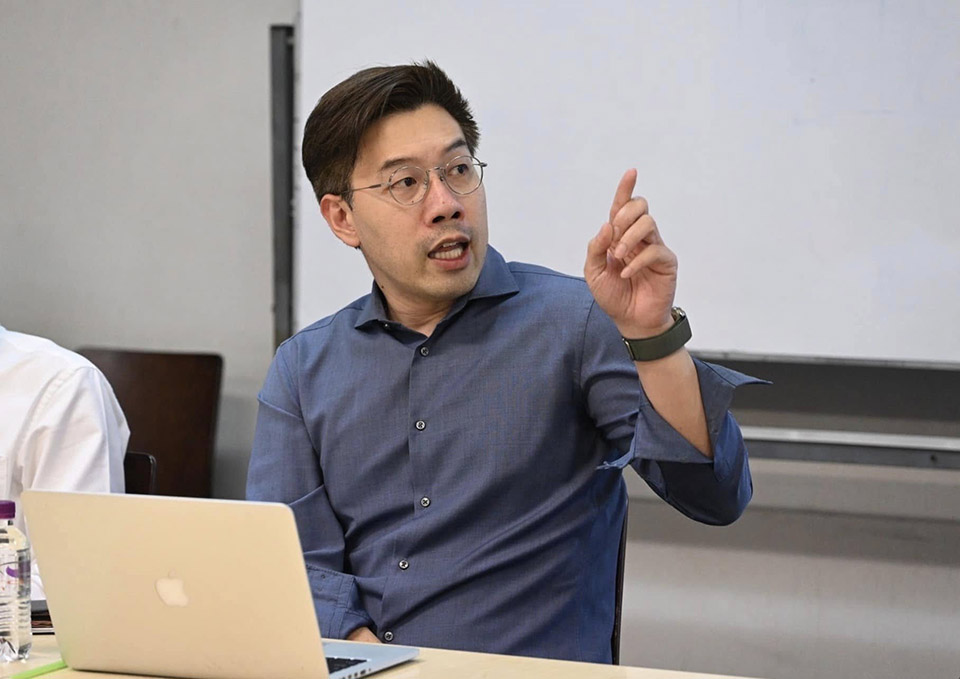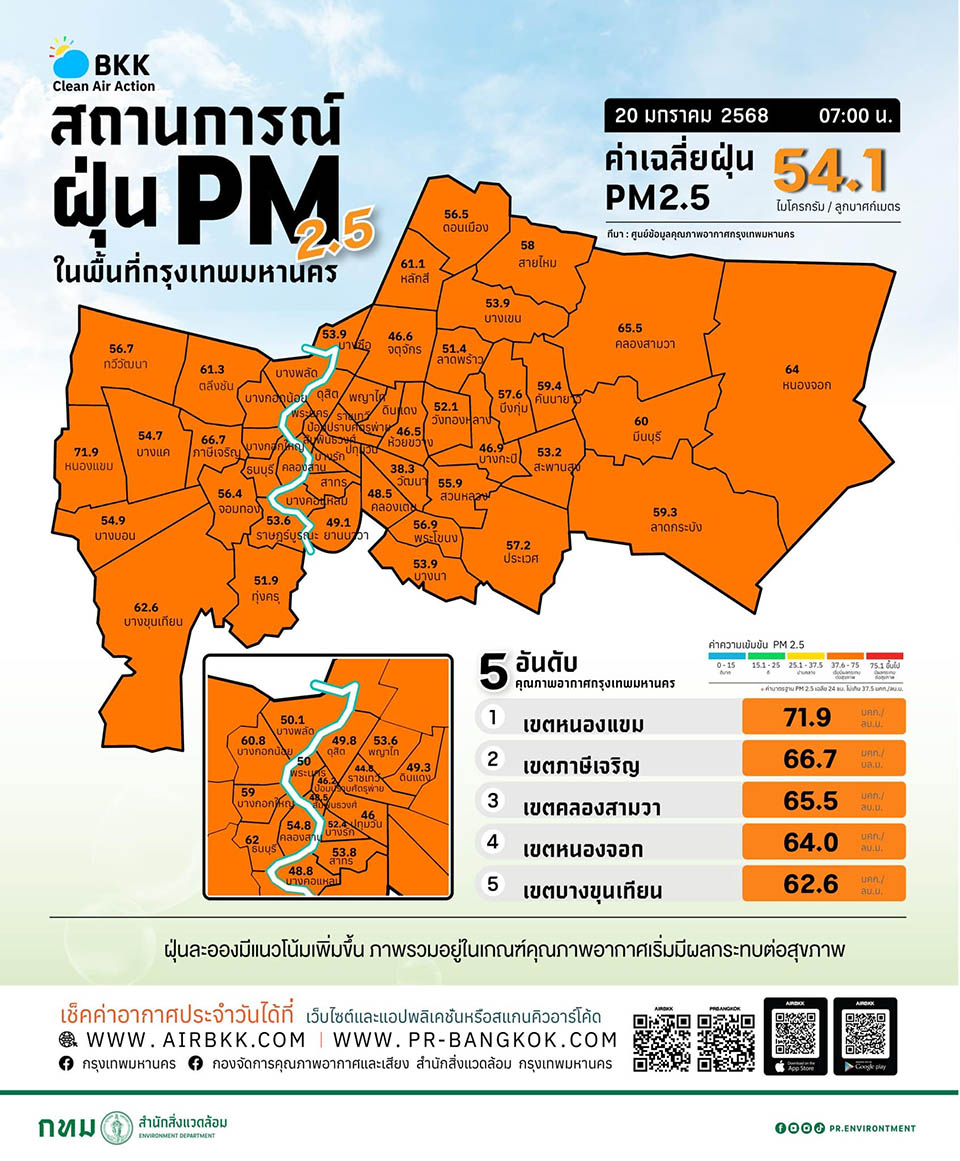
BANGKOK, Thailand – The Bangkok Metropolitan Administration (BMA) has advised residents to stay indoors during days of high air pollution caused by PM2.5 dust particles. For those who cannot work from home (WFH), the BMA strongly recommends wearing protective masks at all times while outdoors.
BMA spokesperson Ekwaranyu Amrapal stated that the city had called for government agencies, private companies, and residents to implement WFH measures on January 20-21. This decision was based on forecasts indicating PM2.5 levels would reach “orange” status, signaling health risks across many districts.
The revised WFH criteria allow for quicker announcements to protect public health. Forecasts for January 20-21 indicate that:
1.Over 35 districts will experience “orange” level PM2.5.
2.Ventilation rates will be poor, ranging from 875 to 2,250 square meters per second.
3.More than 80 hotspots from open burning were detected daily between January 11-15.
The BMA emphasized that WFH can reduce traffic congestion, a significant source of Bangkok’s air pollution.
For those who must leave their homes, especially vulnerable groups such as children, pregnant women, the elderly, and individuals with chronic illnesses (e.g., asthma, heart disease, or kidney disease), wearing protective masks and limiting outdoor activities are essential. Residents are also urged to avoid strenuous outdoor exercises and to seek medical attention if they experience symptoms like coughing, difficulty breathing, or eye irritation.

The BMA encouraged public cooperation to mitigate air pollution by using public transportation, carpooling, and avoiding activities that generate dust, such as burning waste or lighting incense. Additional recommendations include:
1.Cleaning homes using dusting methods instead of sweeping.
2.Avoiding waste burning.
3.Planting trees to absorb pollutants.
4.Turning off vehicle engines while parked and maintaining vehicles to prevent excessive emissions.
The public can play a crucial role in reducing air pollution and protecting health during high PM2.5 periods, the BMA spokesperson concluded. (TNA)+










